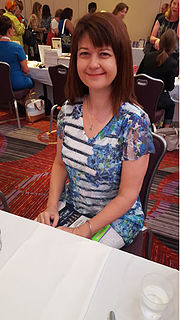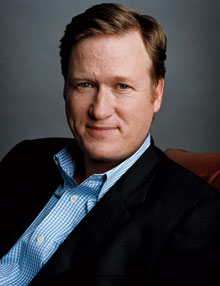A Quote by Edward Abbey
It is always dishonest for a reviewer to review the author instead of the author's book.
Related Quotes
I was a latecomer to romance, although I did read gothics. My father used to work for the 'Fort Worth Star-Telegram,' and their book reviewer, author Leonard Sanders, would pass on the gothics for my dad to give to me since Leonard didn't review gothics. I gobbled up books by Mary Stewart, Madeleine Brent, Victoria Holt and Phyllis Whitney.
Whether the author intended a symbolic resonance to exist in her book is irrelevant. All that matters is whether it's there. Because the book does not exist for the benefit of the author, the book exists for the benefit of YOU. If we as readers can have a bigger and richer experience with the world as a result of reading a symbol and that symbol wasn't intended by the author, WE STILL WIN.
No one really knows the value of book tours. Whether or not they're good ideas, or if they improve book sales. I happen to think the author is the last person you'd want to talk to about a book. They hate it by that point; they've already moved on to a new lover. Besides, the author never knows what the book is about anyway.
So, you see, it's a real chore for me to write a book review because it's like a contest. It's like I'm writing that book review for every bad book reviewer I've ever known and it's a way of saying [thrusts a middle finger into the air] this is how you ought to do it. I like to rub their noses in it.
Frequently, an author gets "orphaned" at a publisher. What this means is that an editor buys their book, then ends up getting fired, promoted, or transferred to a different job somewhere else. It sucks for the author because suddenly the person who liked your book enough to buy it isn't around to help you edit and promote it.
Because every book of art, be it a poem or a cupola, is understandably a self-portrait of its author, we won't strain ourselves too hard trying to distinguish between the author's persona and the poem's lyrical hero. As a rule, such distinctions are quite meaningless, if only because a lyrical hero is invariably an author's self-projection.

































